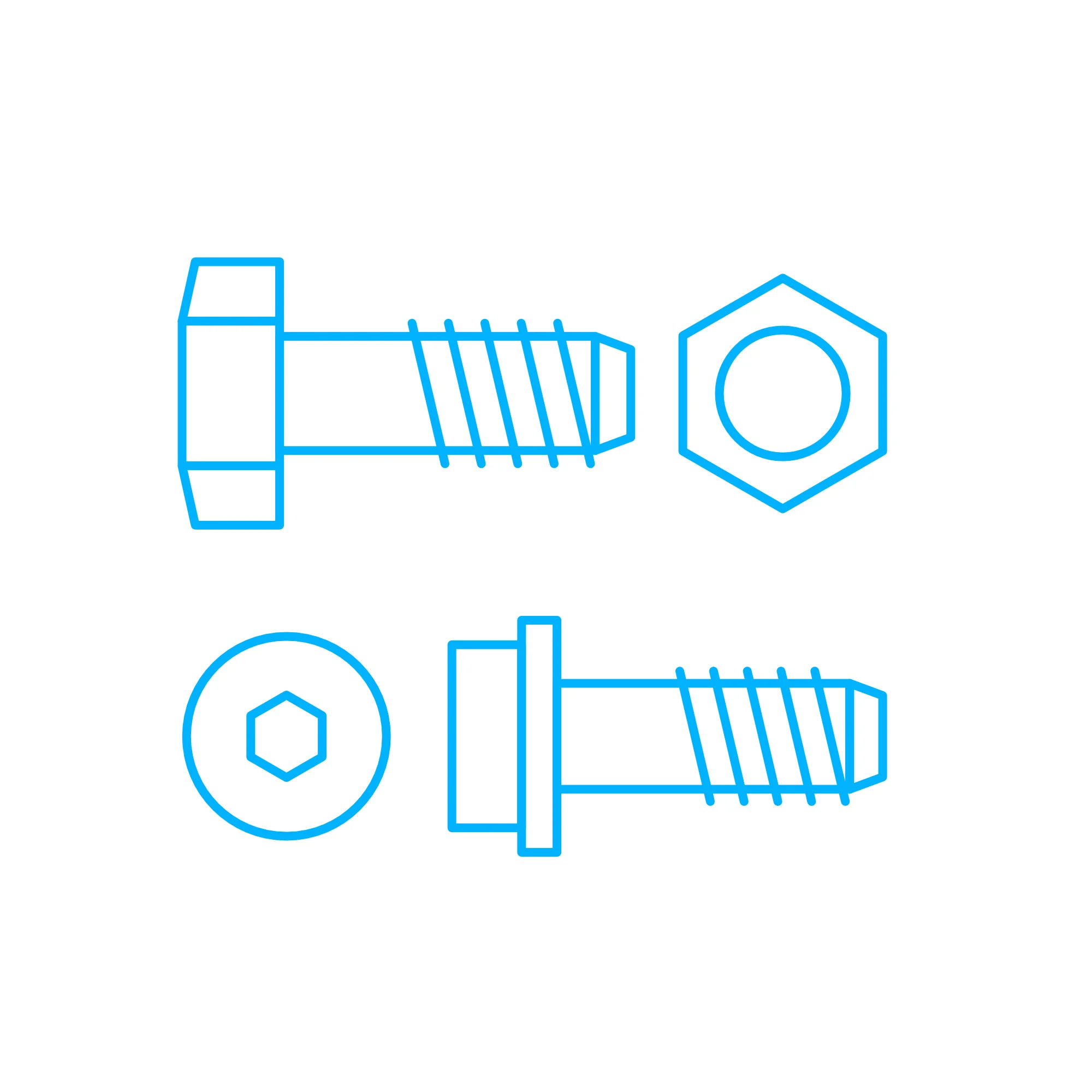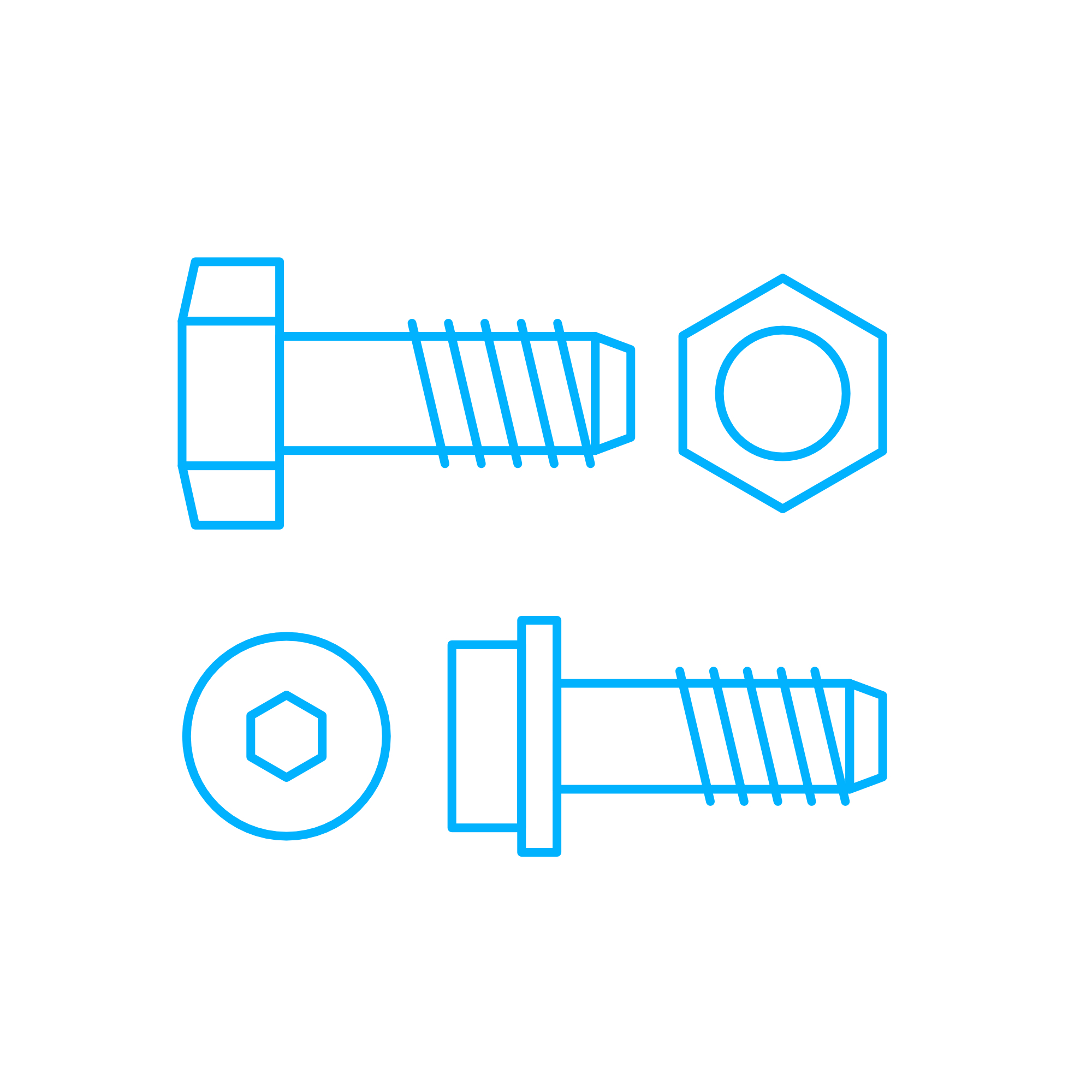COLLAR SCREW Screws for Marine, Diesel, and Gas Engines
Screws are precision fasteners that clamp engine components together, maintain alignment under load, and preserve critical sealing surfaces. In high-output powertrains—whether a marine engine, a diesel engine for power generation, or a gas engine in industrial service—screws hold cylinder heads, main bearing caps, manifolds, gear housings, pumps, and auxiliaries in place. Their job is deceptively simple: create reliable preload so parts stay seated through thermal cycles, vibration, and pressure fluctuations. Within this category, the COLLAR SCREW (flanged or collar-head design) is a workhorse for secure, repeatable clamping with improved load distribution.
Because screws directly influence structural integrity and sealing, they are a fundamental part of every engine. Material grade, heat treatment, geometry, and surface finish determine how well a screw sustains preload, resists fatigue, and survives harsh environments such as salt-laden marine atmospheres or high-temperature turbocharger zones. Choosing the correct screw specification—and replacing it with an equivalent, engine-approved item—protects performance, efficiency, and safety.
Technical function of Screws in engines — the role of the COLLAR SCREW
Engine screws create clamping force through elastic stretch. When tightened to a defined torque or torque-angle, they generate preload that counteracts joint separation forces from combustion pressure, inertia, and vibration. A COLLAR SCREW adds a formed flange under the head that acts like an integrated washer. This wider bearing surface spreads the contact pressure, reduces localized embedding, and stabilizes friction, which helps achieve consistent preload from one assembly to the next—critical in every diesel engine and marine engine.
In practice, screws secure gaskets and joint faces so they seal coolant, lube oil, exhaust gas, and intake air. On cylinder heads and main bearing caps, the correct clamp prevents cap walk, fretting, and misalignment that can accelerate bearing wear. On turbochargers and exhaust manifolds, heat-resistant screws maintain fastening integrity despite thermal gradients and vibration. The COLLAR SCREW design minimizes head imprinting, mitigates loosening from micro-slip, and supports repeatable torque values. Specified coatings—such as phosphate with oil, zinc-nickel, or dry-film lubricants—control friction scatter and improve corrosion resistance, while property classes (e.g., ISO 898-1 10.9 or 12.9) and alloy chemistry govern tensile strength and fatigue life. In corrosive maritime service, stainless or nickel-alloy variants can be selected for the most exposed locations.
For procurement, referencing the exact engine maker reference and using a COLLAR SCREW OEM parts match ensures the correct thread fit, shank length, and under-head geometry. This preserves joint design intent and supports proper torque-angle tightening during overhauls.
- · High, repeatable preload for stable sealing.
- · Collar/flange head distributes load and reduces surface damage.
- · Engineered materials and heat treatment for high tensile strength.
- · Coatings and finishes to control friction and resist corrosion.
- · Tight dimensional tolerances for thread engagement and alignment.
- · Proven performance in marine engine and diesel engine applications.
Why Screws are critical for engine reliability and service life
When screws lose preload—through relaxation, thermal cycles, or corrosion—joints start to move. Even microscopic movement can lead to gasket blow-by, exhaust leaks, coolant or oil seepage, and loss of compression. On rotating assemblies and gear housings, reduced clamp can cause misalignment, vibration, and accelerated bearing or gear wear. In extreme cases, progressive loosening can shear a fastener or elongate threads in the parent material, leading to unplanned downtime and costly secondary damage.
Fatigue failure is another risk. Engine screws endure fluctuating loads; if materials or dimensions fall short of specification, micro-cracks can initiate at thread roots or under-head radii. Corrosion exacerbates this by pitting the surface and lowering fatigue strength. Using the correct COLLAR SCREW, with the right metallurgy, surface treatment, and head geometry, maintains long-term preload, reduces fretting, and extends component life across overhaul intervals.
Advantages of OEM spare parts suitable for Screws and COLLAR SCREW fasteners
Using OEM spare parts suitable for screws provides confidence that each fastener matches the engine design in fit, material, and performance. This is not only about tensile rating; it’s about the complete specification—thread tolerances, under-head radius, collar dimensions, surface finish, and treatments that determine friction and preload consistency.
Compared to non-specified substitutes, correctly matched OEM spare parts suitable for COLLAR SCREW applications help protect your budget by minimizing rework, preventing leaks, and avoiding premature component failure. They support planned maintenance strategies, predictable torque-angle tightening, and stable clamp over the full operating temperature range.
Key reasons to choose OEM spare parts suitable for Screws
- · Dimensional fidelity for precise thread engagement and seating.
- · Verified material grades and heat treatment for fatigue strength.
- · Controlled friction via specified coatings for accurate torque-to-preload.
- · Consistent collar geometry to reduce embedding and fretting.
- · Traceability and documentation to support quality management.
- · Lower lifecycle cost by reducing unplanned downtime and leak-related damage.
MOPA — your partner for COLLAR SCREW and OEM spare parts in the Screws category
MOPA is an experienced and reliable partner for OEM spare parts in the Screws category, including the COLLAR SCREW for marine engine, diesel engine, and gas engine platforms. We combine fast availability with stringent quality processes and secure international trade handling, ensuring that critical fasteners reach your vessel or power plant without delay.
From cylinder head screws to turbocharger flange fasteners, MOPA supplies engine-referenced items with the correct property class, coating, and geometry. Our team supports technical cross-referencing, provides documentation on request, and arranges express dispatch with robust packaging and lot traceability. The result: fewer fitting issues at dock or site, less risk during recommissioning, and a smoother maintenance schedule.
Conclusion
Screws—and especially the COLLAR SCREW—are vital to the structural integrity, sealing, and alignment of modern engines. Correctly specified fasteners protect performance, efficiency, and safety over long service intervals. Choosing OEM spare parts suitable for Screws ensures consistent preload, corrosion resistance, and reliability, while MOPA delivers the speed and quality you need to keep diesel and gas engines running at their best.


